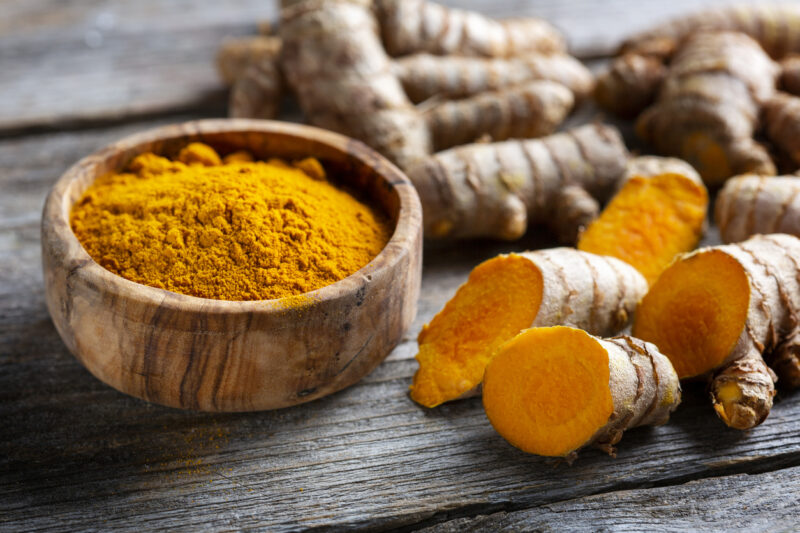Turmeric is a spice that has been used for centuries in traditional medicine due to its many health benefits. Curcumin, turmeric’s active compound, has many anti-inflammatory and antioxidant properties. These properties lend themselves to a variety of health benefits that can be looked at individually to realize the truly vast scope of adding turmeric to your daily routine.
Anti-Inflammatory
One of the main benefits of turmeric is its anti-inflammatory properties. Chronic inflammation is linked to many health conditions, including arthritis, heart disease, and cancer. Turmeric has been shown to reduce inflammation in the body, which can help alleviate symptoms and potentially reduce the risk of these conditions.
Antioxidant
Turmeric also has antioxidant properties, which means it can protect the body from damage caused by free radicals. Free radicals are unstable molecules that can damage cells and contribute to the aging process. By neutralizing free radicals, turmeric can help prevent cell damage and potentially reduce the risk of chronic disease.
Digestive Health
Turmeric has been used in traditional medicine to aid digestion. It can help stimulate the production of bile, which is necessary for digestion of fat. Turmeric has also been shown to reduce symptoms of bloating and gas.
Brain Health
Turmeric has been shown to have benefits for brain health. It has been shown to improve cognitive function and memory in healthy adults. Turmeric may also have potential as a treatment for Alzheimer’s disease, as it has been shown to reduce inflammation and oxidative stress in the brain.
Skin Health
Turmeric has been used topically for its health benefits. In addition to its proven anti-inflammatory properties, it also possesses antibacterial properties, which can help with skin conditions such as acne and psoriasis. Turmeric can also improve skin elasticity and reduce the appearance of fine lines and wrinkles.
Immune System
Turmeric has been shown to have immune-boosting properties. It may help stimulate the production of white blood cells, which are necessary for a healthy immune system. Turmeric, with its proposed antibacterial and antiviral properties, can help fight infections.
Cardiovascular Health
Turmeric has been shown to have benefits for cardiovascular health. It can help reduce cholesterol levels and improve blood flow, which can reduce the risk of heart disease. Turmeric may also help reduce inflammation in the blood vessels, which can improve overall cardiovascular health.
How to Incorporate Turmeric Into Your Daily Routine
One of the easiest ways to add turmeric into your daily routine is by adding it to your food. Turmeric is commonly used in curries, soups, and rice dishes. You can also sprinkle it on roasted vegetables or add it to smoothies. To increase the absorption of curcumin, it’s recommended to consume turmeric with black pepper, as this can enhance its bioavailability (the portion of the curcumin that enters the circulation in your body).
Turmeric supplements are also available in the form of capsules, tablets, or extracts. Supplements are a convenient way to consume turmeric, especially if you do not like the taste of turmeric or find it difficult to consistently add it to your diet. 10X Health has developed one of the purest turmeric supplements on the market, CoreCumin, and uses a proprietary technology to grind the turmeric into particles small enough to ensure maximum absorption by the body.
Turmeric can also be used topically for its health benefits. You can make an at-home turmeric face mask by mixing 1 teaspoon of turmeric powder with 1 tablespoon of honey and 1 tablespoon of plain yogurt. Apply the mixture to your face and leave it on for 10-15 minutes before rinsing off with warm water.
Adding turmeric, or a turmeric supplement, to your daily routine can have many health benefits. For questions about how turmeric can personally help your wellness journey, reach out to 10X Health today!
